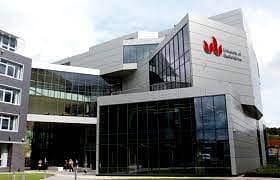Today's big stories are complex, simultaneously political, economic, hyper-local and global. You will learn about transnational organisations, critique theories relating to the role of the media and globalisation and practice journalism across various media platforms.
Why choose this course?
- Study with professionals from the industry, including alumni of this course, who will share practice examples, give you tips on entering the industry and help you develop your network
- Explore career options in regional, national and transnational reporting, or as a political, economic and foreign correspondent as you develop into a rounded journalist capable of seeing the whole 'global' story
- Develop your resourcefulness and enterprise – with an ability to identify and pursue stories and to challenge, test and critique evidence, while adhering to ethical codes of conduct
- Gain first-hand knowledge, by visiting national and/or international news organisations such as Reuters and Bloomberg, as well as UK/EU parliaments; work on the University community radio station and student newspaper or gain experience with local and regional newspapers and radio stations
- Benefit from a degree that gives you relevant transferable skills in publishing, copywriting, public relations, in-house press office positions, teaching, sports journalism, media research and digital media production, or enable you to continue to an MPhil or PhD research degree.
Unit Information - What will I learn?
Units
- Final Project In International Journalism (MED000-6) Compulsory
- Journalism Practices Around The World (MED002-6) Compulsory
- Media And International Development (MED026-6) Compulsory
- Research Methods (MED030-6) Compulsory
- The Global Reporter (MED001-6) Compulsory
How will I be assessed?
The course is fully compliant with University regulations for assessment, mitigation, appeals and complaints. The assessment strategy is designed to provide students with the knowledge and skills that are required in a professional environment. Assessments take a variety of forms including written work (essay, report, research proposal, dissertation) oral presentations, and practical work (empirical research). For some assessments there will be opportunity for formative feedback on assessments-in-progress before the assessment deadline and you are encouraged to integrate formative and summative feedback into your work in order to develop as mass media experts and academic researchers.


